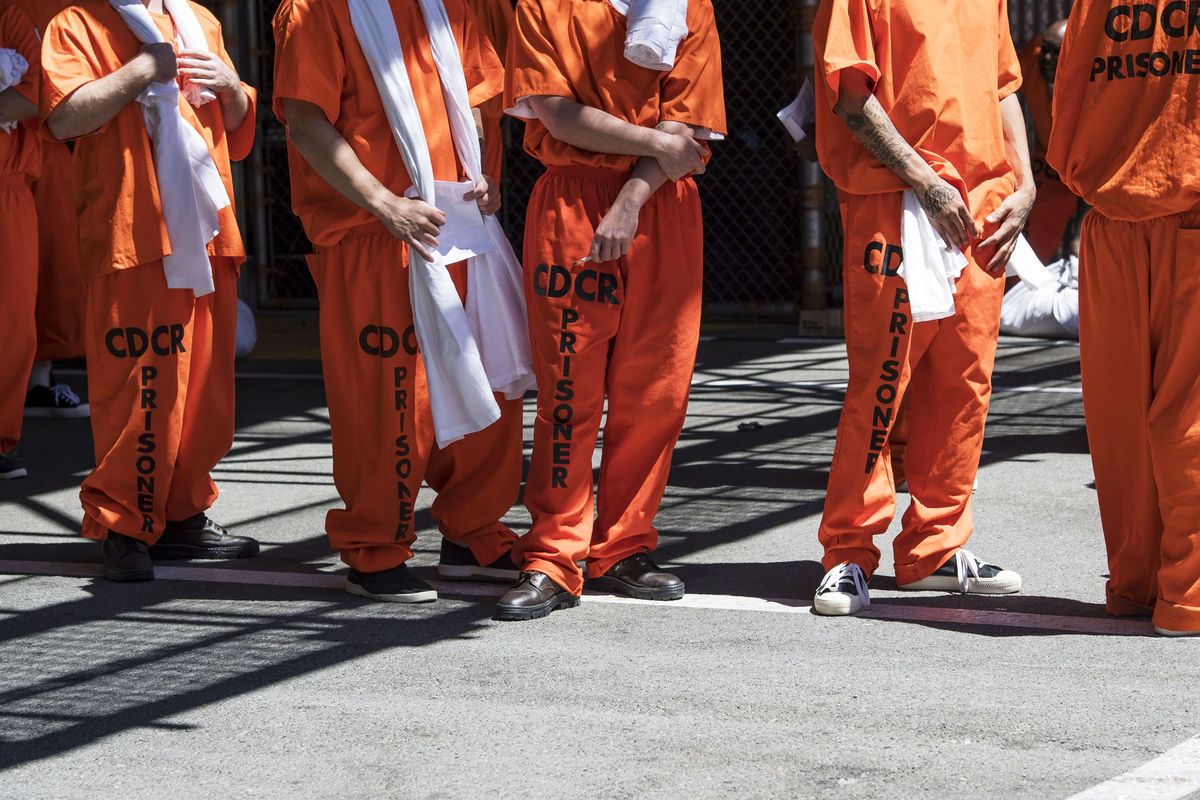Supreme Court lifts order requiring greater COVID-19 safety measures at California jail

A few minutes every morning is all you need.
Stay up to date on the world's Headlines and Human Stories. It's fun, it's factual, it's fluff-free.
The United States Supreme Court has ruled by a majority of 5-4 that the sheriff of Orange County jail, California, does not have to comply with a lower court’s injunction to increase COVID-19 safety measures in the midst of an outbreak in the jail.
The Supreme Court ruled along party lines, with its four liberal judges in dissent. Wednesday’s ruling represents a pattern of the court choosing not to get involved with how state officials handle COVID-19 outbreaks.
Cassandra Stubbs of the American Civil Liberties Union (ACLU), who represented the inmates in the court case, stated that before the district court’s injunction, the county jail was “shuffling inmates around the jail in defiance of Centers for Disease Control and Prevention guidelines,” leaving them “packed into dayrooms sharing the same air and bathrooms without social distancing."
Stubbs added that the inmates were given “watered-down disinfectant and makeshift masks made from bloodstained sheets."
450 inmates test positive
The jail currently has about 3,000 detainees, of which 450 have tested positive for COVID-19 since March.
The injunction issued by Judge Jesus Bernal of the Federal District Court for the Central District of California stated that the Orange County jail must conduct temperature checks of inmates everyday. The jail’s officials were also ordered to interview the inmates about the jail’s conditions.
The injunction further required the officials to test any inmate showing COVID-19 related symptoms, enforce social distancing and give all inmates access to cleaning supplies.
The Supreme Court’s unsigned emergency order temporarily lifted the lower court’s injunction. As is typical of such orders, no reasoning was given by the majority for its decision.
Sheriff Don Barnes of the Orange county jail told the Supreme Court in its emergency application asking to lift the injunction that officials had already released more than half the jail’s population to enforce social distancing.
“The district court’s injunction seizes the role of administration of the jail, prevents nimble responses to the virus in an ever-changing landscape and puts focus on compliance with the order and avoiding contempt, rather than squarely on combating the contagion,” jail officials told the justices.
Liberal justices dissent
However, liberal Supreme Court Justice Sonia Sotomayor said in her dissent that the COVID-19 safety requirements imposed by the lower court were “not remarkable”, which made the Supreme Court’s intervention unusual.
Sotomayor was joined in her dissenting opinion by Justice Ruth Bader Ginsburg.
“The release of even a large number of inmates does not absolve the jail of its responsibility for the health and safety of the roughly 3,000 individuals left behind.”
Sotomayor wrote that contrary to the jail’s claims that social distancing was enforced, “inmates described being transported back and forth to the jail in crammed buses, socializing in day rooms with no space to distance physically, lining up next to each other to wait for the phone, sleeping in bunk beds two to three feet apart, and even being ordered to stand closer than six feet apart when inmates tried to socially distance.
“The district court found that, despite knowing the severe threat posed by COVID-19 and contrary to its own apparent policies, the jail exposed its inmates to significant risks from a highly contagious and potentially deadly disease.
“Yet this court now intervenes, leaving to its own devices a jail that has misrepresented its actions to the district court and failed to safeguard the health of the inmates in its care,” Sotomayor went on to add in her dissent.
Have a tip or story? Get in touch with our reporters at tips@themilsource.com




Comments ()